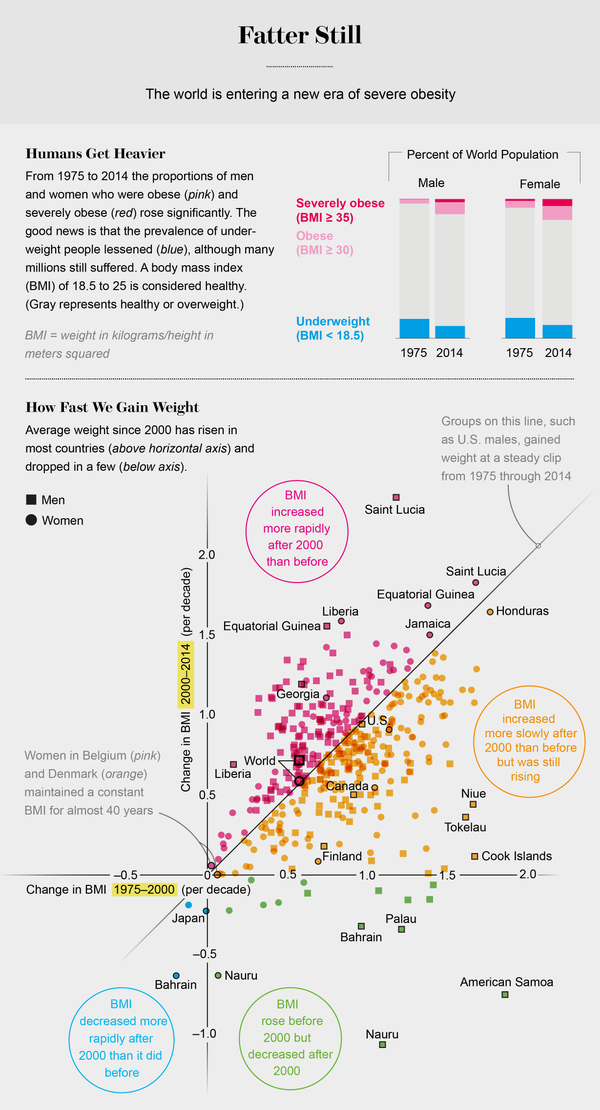On supporting science journalism
If you're enjoying this article, consider supporting our award-winning journalism by subscribing. By purchasing a subscription you are helping to ensure the future of impactful stories about the discoveries and ideas shaping our world today.
People in many developing nations, such as Liberia and Georgia, are gaining weight at a rapid pace, faster since 2000 than they did from 1975 to 2000 (among pink icons). And although the rate of weight gain in many developed countries since 2000 is slower than it was prior (among orange icons), it has kept going up. When taken together, the two trends mean that “for much of the world, we are passing from an era of obesity into a new era of severe obesity,” says Majid Ezzati, lead scientist on a far-reaching study of 200 countries published recently in the Lancet. Researchers “are surprised by the extent of severe obesity,” he says (bar chart). If the trajectory continues, Ezzati says, it will be virtually impossible to meet the World Health Organization's global goals of halting the rises in obesity and diabetes by 2025.

SOURCE: “TRENDS IN ADULT BODY-MASS INDEX IN 200 COUNTRIES FROM 1975 TO 2014: A POOLED ANALYSIS OF 1698 POPULATION-BASED MEASUREMENT STUDIES WITH 19.2 MILLION PARTICIPANTS,” BY NCD RISK FACTOR COLLABORATION, IN LANCET, VOL. 387; APRIL 2, 2016; NCD RISK FACTOR COLLABORATION www.ncdrisc.org (data) Graphic by Jen Christiansen

